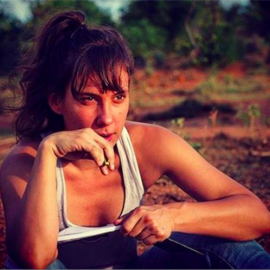Hamidou Barry has come to Bamako to find his son. His village of Ikerena, in the rural heart of Mali, is a long way from the capital, but this is where he’s been told that men detained by the security forces are taken.
Barry rented a room in the home of a very distant relative. The city is expensive: He’s running out of money and he still hasn’t made contact with anyone who can shed light on the whereabouts of his son, also called Hamidou.
Witnesses told Barry that Hamidou, 38, was arrested in mid-December at the hospital in Douentza where he had taken his friend for treatment. For some reason the police took an interest in the two Fulani men. They found a sermon by Fulani Islamist extremist Hamadoun Koufa on Hamidou’s phone, but Barry insists that does not make his son a jihadist.
Koufa is a marabout (preacher) from the central Malian town of Niafunke. He is also a protégé of the veteran Tuareg leader Iyad Ag Ghali, who heads Ansar Dine (Defenders of the Faith), an al-Qaeda in the Islamic Maghreb (AQIM)-linked militant group.
Rebels with a cause?
The connection between the two men is just one of a web of overlapping conflicts and shifting alliances the Malian government is struggling to contain, even with generous Western military support.
Koufa fought in northern Mali with Ansar Dine and allied jihadist groups in 2012, rapidly overrunning the region’s main towns. He then led his men south. That advance, threatening Bamako, triggered a French and African Union intervention that scattered his forces.
Koufa re-emerged in 2015 as the head of the newly-founded Macina Liberation Front (FLM), a movement that seeks the revival of the 19th century Macina Empire, a Fulani-led Islamic state based in the central Mopti and Segou regions of present-day Mali.
FLM recruitment has stoked and exploited community tensions, especially between Fulani pastoralists and Bambara farmers over land and access to pasture. The Bambara have turned to government-backed Dozo self-defence militia, and there is now an unbroken tempo of tit-for-tat killings of civilians, along with more formal executions of government officials by the FLM.
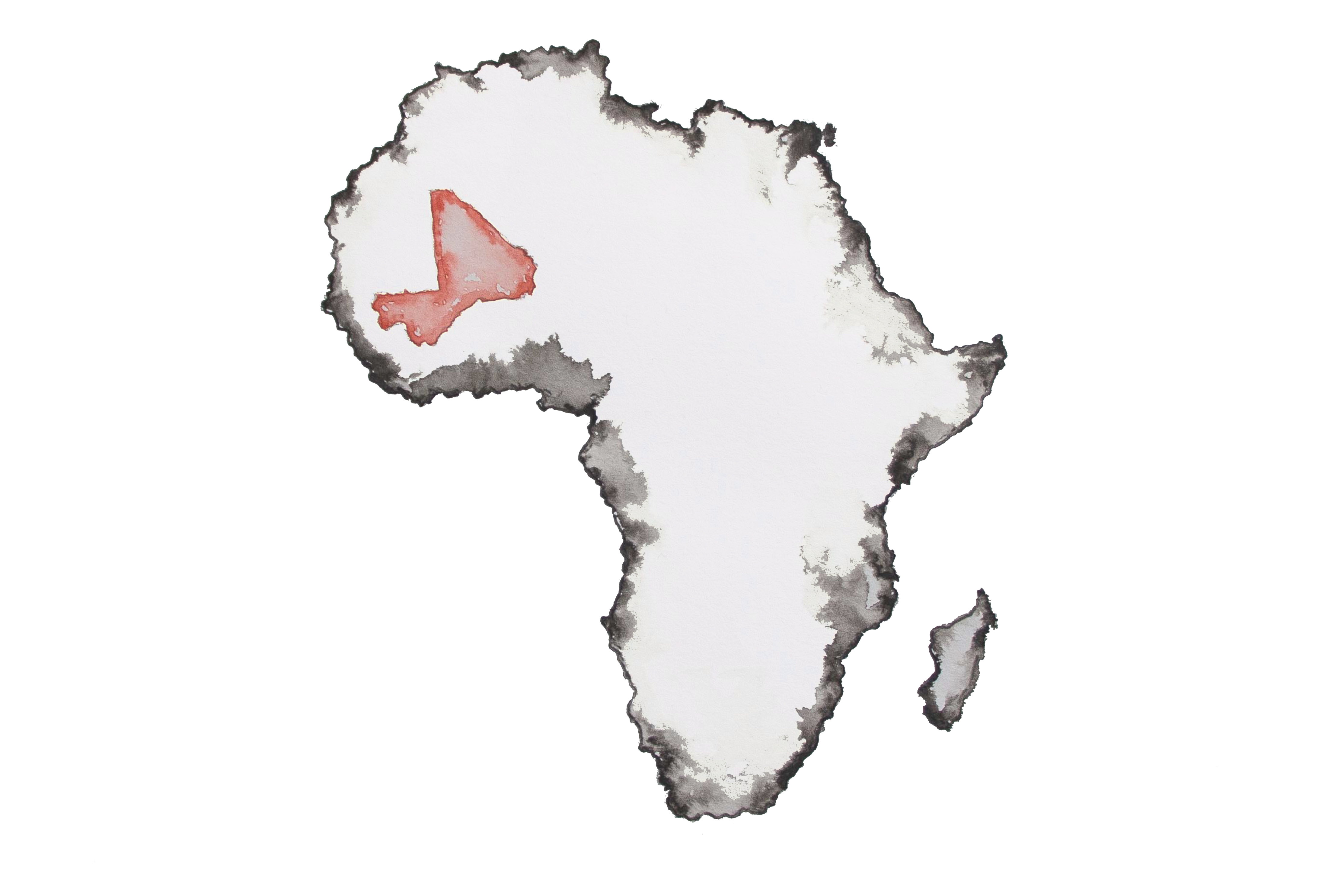
Central Mali has taken over from the north as the country’s most lethal region.
“It’s a toxic mix of intercommunal violence, jihadist activities, and abuses by government forces together fuelling this vicious circle,” said Héni Nsaibia, an analyst at Menastream, a risk consultancy firm that covers the Middle East, North Africa, and the Sahel.
But the violence is not just narrowly sectarian. A Human Rights Watch report documenting testimonies earlier this year from both communities included the account of a Fulani youth leader who pointed out: “We, the Peuhl [Fulani], were the jihadists’ first victims… we’ve also lost imams, mayors, and chiefs at the hands of the jihadists, but no one talks about that.”
Both sides have condemned the government’s failure to provide justice for the killings and to hold its own security forces accountable.
A Bambara leader was quoted by HRW as saying: “Since 2015, so many of our people have been gunned down in their farms, at home, or on their way to market. We have reported this to local and Bamako authorities, but what we hear are excuses for why they don’t investigate – the rain, the danger, insufficient vehicles. But in the end, there is no justice and the killings keep happening.”
Hearts and minds
When the government does act, it is heavy handed. HRW has recorded a number of arbitrary arrests by the security forces, especially around Douentza, where Hamidou was picked up.
When IRIN last spoke to Barry, he had run out of money and was returning home, without his son.
Abuses fuel FLM recruitment. It has adopted AQIM’s playbook of taking advantage of a weak state by embedding within the local community, listening to their problems, and fashioning its message accordingly.
"Hamadoun Koufa came [to Mopti] preaching about the government. He said he would help, not the government," explained Amadou Thiam, a Fulani opposition politician.
“In many villages, the jihadists appear to be replacing the state actors responsible for addressing banditry; for responding to common crime, marital and family disputes; and for ensuring community reconciliation,” said Corinne Dufka, HRW’s West Africa director.
“The messages they preach in community meetings, against corruption, state neglect, and at times abusive community elders, is appearing to resonate.”
The government’s presence doesn’t extend much beyond Segou, three hours from Bamako. Even without the challenge of insurgency, successive southern-based Malian governments have failed to stamp their authority in the north, where the population is relatively small and conditions extremely harsh.
Neglected north
The Tuareg, a traditionally nomadic group, span the Sahara Desert. They are the largest ethnic group in northeast Mali. Fiercely independent, they have historically been influential in the spread of Islam in the Sahel.
Tuareg militants control the informal trade networks, from migration to drugs and contraband cigarettes, on which the region’s economy depends.
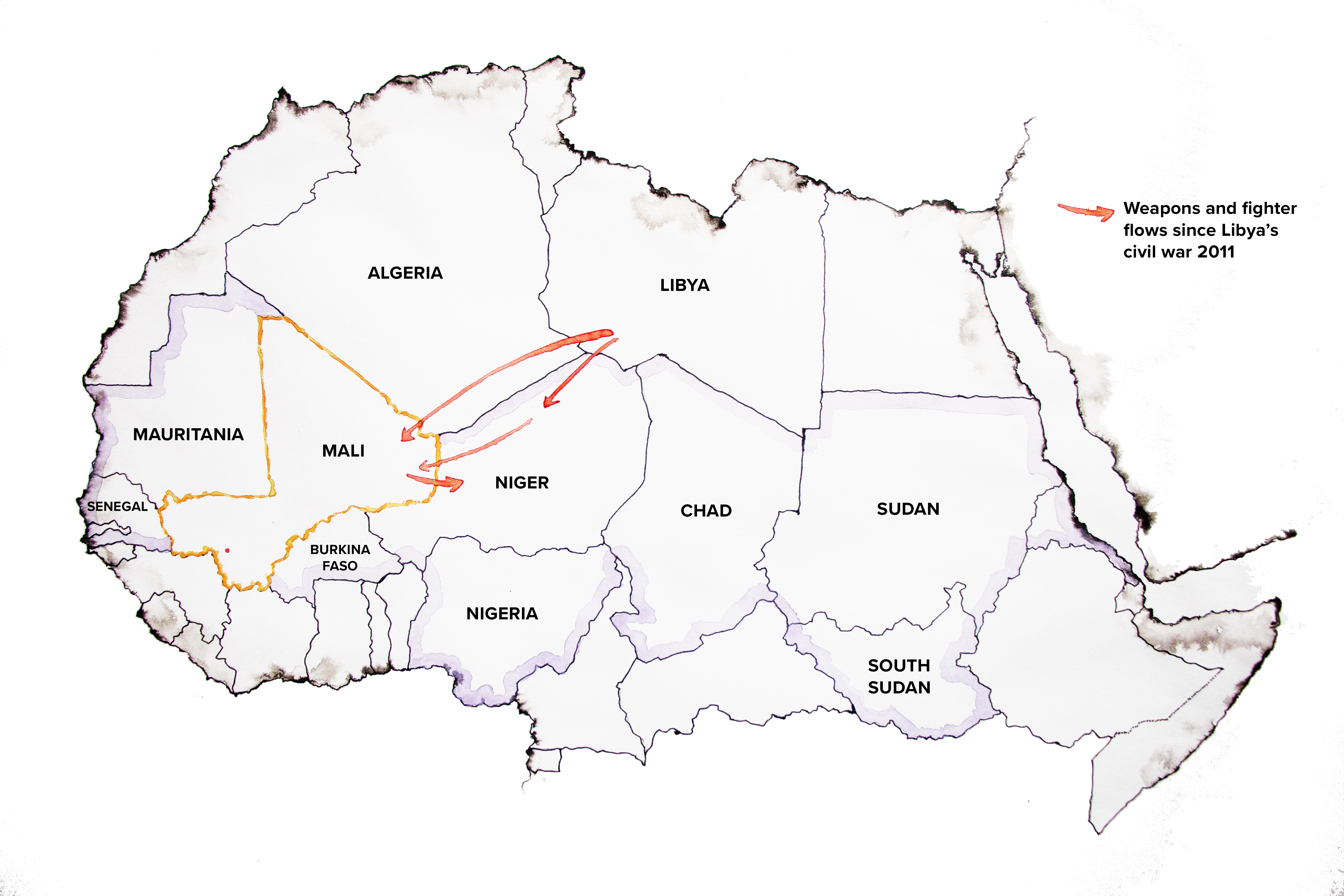
Northern Mali has been a stronghold for jihadists since 2003, when Algeria’s Salafist Group for Preaching and Combat, fleeing a government clampdown, escaped across the border. Key to the militants’ survival was a tacit agreement with the Malian military and state officials that largely left them alone.
In 2012 they made common cause with the Tuareg National Movement for the Liberation of Azawad. The rebellion relaunched longstanding separatist demands for the secession of the neglected north.
But soon after the independence of “Azawad” was proclaimed, the MNLA was under attack by Ansar Dine and a coalition of jihadist fighters, determined to impose an extreme version of shariah law in the north.
The French military won back the region for the government. Operation Serval, an air and ground mission, was launched at the request of Bamako as the jihadists rolled south. France continues to fight in Mali as part of a regional anti-terror drive called Operation Barkhane.
Underlining that investment, Emmanuel Macron, the newly elected French president, made Mali his first official visit outside Europe, earlier this month.
The West’s concern is the transnational threat of jihadism. Some Malian groups have links with Boko Haram in Nigeria, and AQIM last year launched attacks on Burkina Faso and Cote d’Ivoire. Neighbouring Senegal is concerned it could be next.
In what the International Crisis Group has described as a “security traffic jam”, more external military intervention is envisaged, from the G-5 (Burkina Faso, Chad, Mali, Mauritania, and Niger) and/or the G-3 (Burkina Faso, Niger and Mali).
But military force alone cannot put Mali together again. The north is now splintered as competing groups emerge – some narrowly ethnic, others backing the jihadists. The government has fallen back on an old model of corrupt payoffs and the use of local proxies to manage the conflict. What is needed, though, is better governance.
View from Timbuktu
The 700-year-old, mud-built Djinguereber mosque in Timbuktu is a tourist must-see. Inside, the light refracts between its adobe pillars. It’s cool and airy and the acoustics are just how you’d imagine talking under water might sound. In the desert sky above this iconic building a UN military drone buzzes.
Within minutes of new arrivals at the mosque, a man has spread out a small blanket and set up piles of worn postcards and jewelry. He explains that no tourists have visited this famed site in five years. He looks hopeful, if only for a moment.
Timbuktu was held by the Tuareg-dominated Ansar Dine for several months in 2012. They imposed a stringent, alien version of Islamic law in what is a traditionally moderate country. Centuries-old Sufi shrines and Islamic manuscripts, cultural treasures on which Timbuktu’s fame is based, were destroyed.
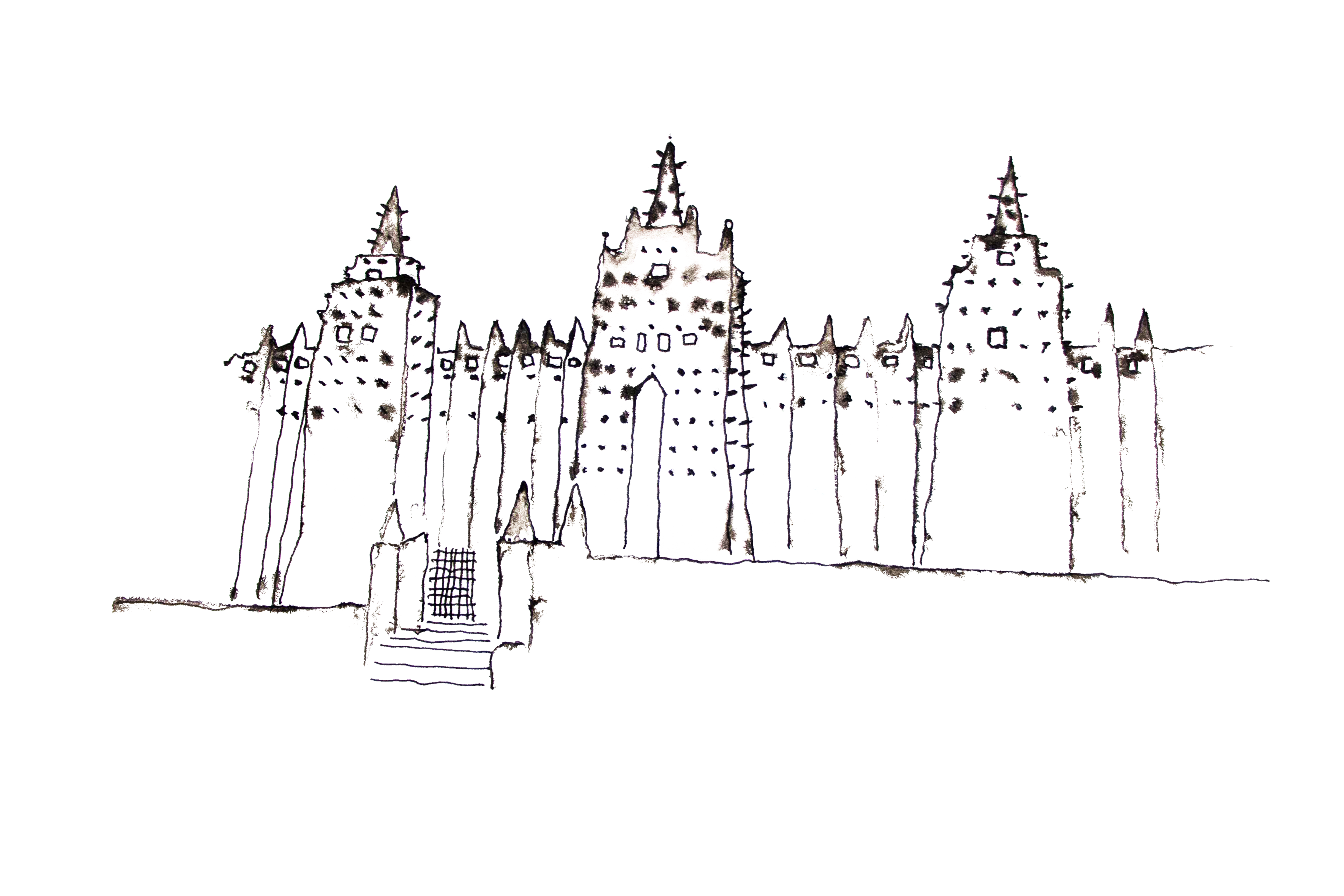
Although the town was recaptured in January 2013, the only visitors to Timbuktu these days are UN soldiers and a smattering of aid workers and government officials. In the vast northern desert beyond the city, jihadist groups hold sway.
Timbuktu’s urbanites find the jihadist presence unsettling. But in the conservative rural areas there is far greater acceptance, a local NGO worker, who asked not to be named, told IRIN.
Timbuktu remains unsafe. On 15 May, there was a rocket attack on the airport; earlier this month a UN police base came under fire, as did a Malian army checkpoint. The raids occur despite the presence of Burkinabe and Swedish contingents of the UN Multidimensional Integrated Stabilisation Mission in Mali.
The scruffy Malian soldiers tasked with jointly securing the city with the UN peacekeeping force, MINUSMA, seem marooned, vulnerable and disconnected from any notion of nation-building. They don’t always show up for the nightly joint patrols they are supposed to undertake.
A broader conflict
MINUSMA is a 13,817-strong, $933 million operation.
Among its contributors are European countries that have brought a level of sophistication – including drones, special forces, and intelligence cells – few other UN missions possess.
But it is also the UN’s most dangerous mission, with 118 peacekeepers killed since 2013.
It hasn’t been hard for the jihadists to portray MINUSMA and the European intervention as a neo-colonial plot, propping up a corrupt regime as they steal the country’s raw materials. But the West’s strategic interests clearly go beyond countering extremism to include policing the migration routes from sub-Saharan Africa to the Mediterranean.
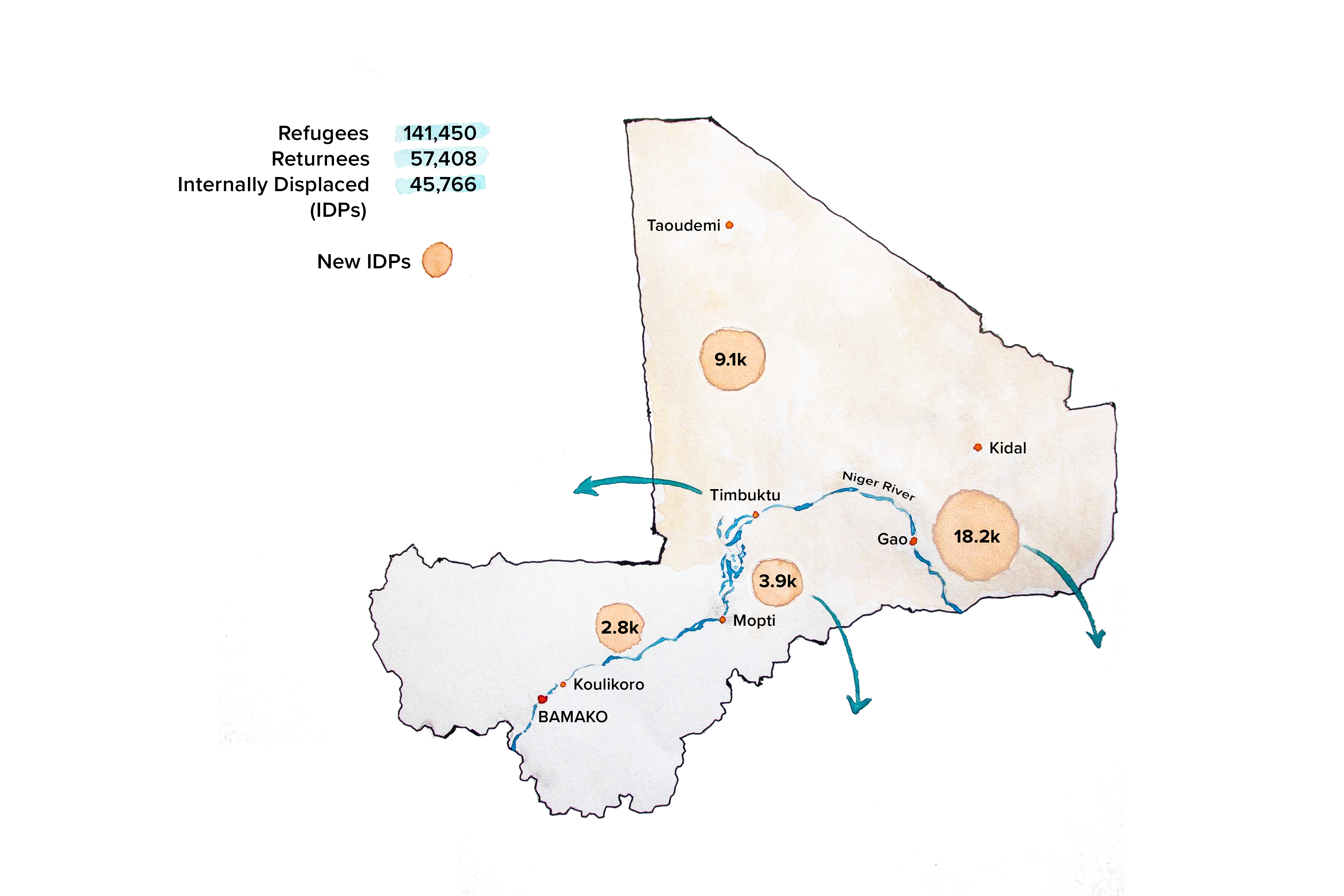
From north to south, Mali’s state institutions are barely functioning or entirely broken. For months, earlier this year, public schools and hospitals were closed because teachers and health workers were on strike.
“It’s difficult to say what really works in Mali today,” wrote Abdelkader Abderrahmane, an international consultant on African peace and security issues, in an email to IRIN.
Kamissa Camara, a researcher based in Washington DC and specialising in Africa's Sahel region, said she doubts that any Malian children, save the ones living near Bamako, have gone to school for a straight year since 2012.
The jihadist “threat narrative has obscured a proper assessment of the Malian government’s performance and its ability to deliver basic public services and create jobs,” Camara wrote in a piece for the Africa Research Institute.
Both Abderrahmane and Camara think that corruption has eroded popular support for successive administrations, and added to the resilience of Mali’s overlapping conflicts.
Peace deal
For the past two years there has been a shaky framework for peace called the Algiers Accord, which has been unhurriedly implemented.
The two principal signatories are a coalition of Tuareg rebels known as the Coordination of the Azawad Movements, or CMA, and ostensibly pro-government armed rivals grouped in what is called the Platform.
The jihadists were not included in the agreement and have tried to wreck it. The most dramatic example was a bomb explosion in Gao in January that targeted a joint patrol of rebel fighters (the first patrol of its kind, 18 months after the accord was signed). The attack, which reportedly killed 80 people, stalled the initiative.
In March, the extremists created their own coalition, Jama’at Nusrat al-Islam wa al-Muslimin (the Group for the Support of Islam and Muslims, or JNIM). It fuses AQIM, Ansar Dine, and FLM, and is led by Ag Ghali. It excludes a small faction that has sided with the so-called Islamic State.
Simply throwing more troops at the jihadists does not seem to be the answer.
But there could now be a new twist in the five-year conflict.
A Conference of National Understanding, held between the government and non-jihadist armed groups in the north, had been heading the way of other stalled provisions of the 2015 peace agreement. But after a series of boycotts, it delivered a key recommendation at its close on 2 April that has jolted Mali’s political class: the idea that the government should talk to Malian jihadists, specifically Ag Ghali and Koufa.
After initially appearing to welcome the suggestion, Malian President Ibrahim Boubacar Keita has since backtracked. France has adamantly rejected it. “We are engaged in a fight. It is a fight without ambiguity against terrorism… And so there is only one way; there are not two,” France’s then-foreign minister Jean-Marc Ayrault said on a visit to Mali in April.
There are also political and legal obstacles to talking with people linked to al-Qaeda. Ag Ghali is on a US terrorist list for a start, which would complicate any potential amnesty deal. Nobody knows what concessions he would seek to extract, how reliable an interlocutor he would be, and how talks might impact on an international coalition that has shed much blood fighting in the north. Domestically, dialogue could also become hostage to Mali’s elections due next year.
But it is "worth a try”, noted well-regarded Sahelian analyst Alex Thurston in a recent blog: “A peace process that makes no room for Ag Ghali is one that will be disrupted, perhaps fatally, by regular jihadist attacks.”
That’s not to say, he added, that the Malian government “could magically find common ground with Ag Ghali, but it is to say that opening a channel of dialogue could bear fruit.”
as/oa/ag
